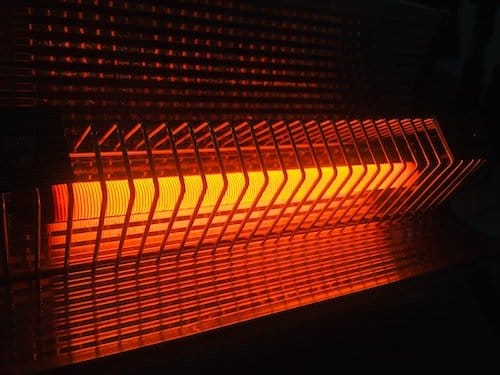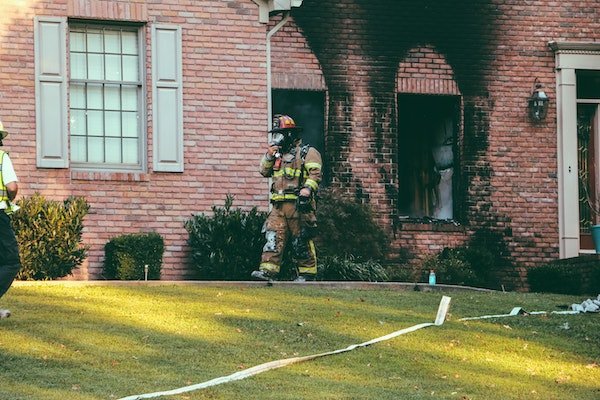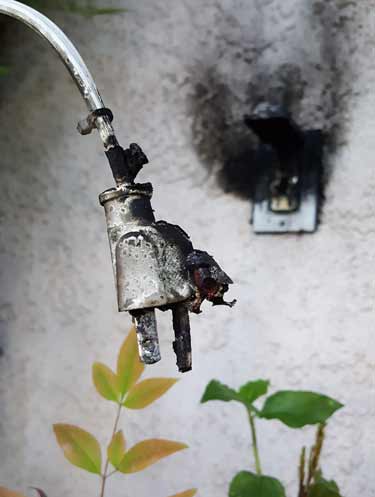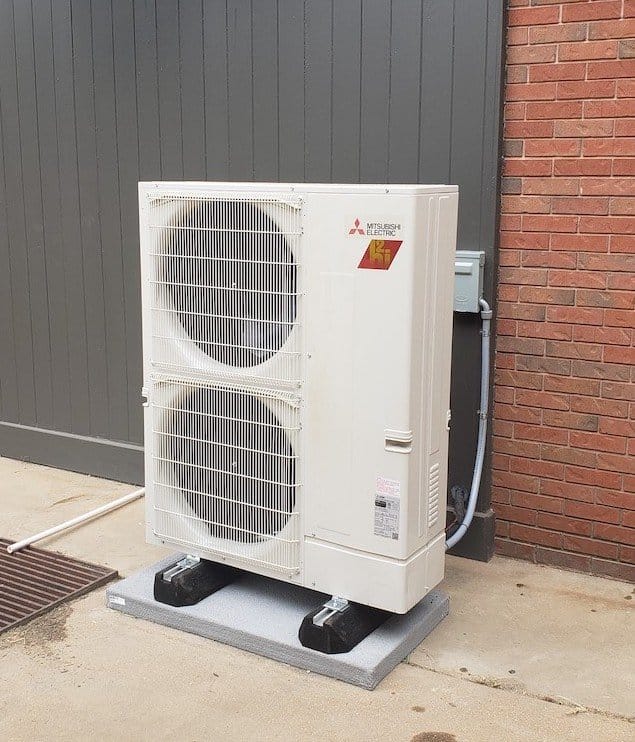Your trusted home service experts
Space Heater Fire Safety & The Ductless Alternative
How Do Space Heater Fires Start?

When using a space heater, it’s critical to consider the following:
- Location & Placement of the space heater
- Size of the space heater
- Correct use of cords, cables and outlets
- Overuse of space heaters
- Safer alternatives to space heaters
When these are not carefully considered, they can regularly contribute to fires and other hazards. If you’re using a space heater, it may be time to shift toward safer and more efficient heating methods.

How Much Electricity Does A Space Heater Use?
Space heaters can provide a very direct source of heat for small areas, sometimes at a lower cost than other sources. If you’re looking for heat under a desk while you work, or confined to a very small part of a room, they can be quite inexpensive. A Consumer Reports test of electric space heaters found the following:
- Space Heaters consume about 1500 Watts per hour.
- Cost of watts per hour vary, but averages are about $0.15 / hr
- Cost per day averages around $2.50 per day (not including sleeping hours, which is hazardous)
Can a Space Heater Catch On Fire?

Space heaters are a matter of convenience, allowing you to supplement your heating in the draftiest rooms and provide warmth where there may be none in spaces like garages and sunrooms. But different types of space heaters do come with known risks including fire, burns, electrical shock and carbon monoxide leaks that could poison the air.
The top issue with space heaters is that they are indeed a significant fire hazard.
According to the US Department of Energy and their work with the Consumer Product Safety Commission:
- 25,000 residential fires every year are linked to space heater use
- More than 300 deaths result from these fires
- About 6,000 people visit the emergency room for burn injuries linked to space heaters

Where To Use (and Not Use) a Space Heater

Be sure to choose a safe area to use your space heater. Avoid humid areas or spaces like bathrooms that are prone to moisture buildup.
The Nashville Fire Department’s Fire Marshal Division notes that space heater fires can often be avoided by:
- Maintaining a distance for all objects of at least 3 feet from any heat source. This would include paper, fabrics, curtains, blankets and more
- Always turning off space heaters when going to bed or even leaving the room
- Regularly testing your smoke alarms so they can be ready to come to your aid
Here are some additional considerations for space heater placement:
- Never place a space heater on furniture
- Never block a doorway or escape route
- Avoid placement on carpet or area rugs
- Do not leave a heating unit unattended near pets or children – they can lead to burns and other injuries.

Consider the Size of Your Space Heater
The US Department of Energy warns, “Do not purchase oversized heaters.” When a heater is too large or too powerful for the space it’s being used in, the risk of fire increases. Follow the general sizing guidelines included by most manufacturers.
As a general rule, you’ll want to choose a space heater that allows for about 10 watts per square foot. So a room of 150 square feet would require 1,500 watts. You’ll want to familiarize yourself with the most common sizing spec: the British Thermal Units (BTU). Noting that 1 Watt equals 3.41 BTUs, a 1,500 watt heater would then provide 5,115 BTUs.
Plug electric heaters directly into the wall outlet if possible. Many extension cords and power strips are not designed to handle the load of an electric heater. If an extension cord is necessary, use the shortest possible heavy-duty cord of 14-gauge wire or larger.” – Missouri Office of the State Fire Marshal
Consider Your Cords, Cables and Outlets

Space heaters aren’t something that are replaced frequently or even maintained. It’s critical to check for worn, faulty or torn wires to prevent electrical fire. The Ohio Fire Chiefs’ Association warns against plugging space heaters into extension cords to avoid overheating. Even though some heavy duty extension cords are designed for high wattage appliances, these can frequently melt, smoke and spark very quickly with space heaters.

Learn More about Electrical Outlet Safety
Additional safety considerations for cords and units:
- Do not use power strips – the current flow from a space heater is too high and can overheat and cause fire
- Do not run cords under the rug – these areas quickly build heat
- Only use units that have a tip-over safety switch – these shut off automatically if the unit is knocked over.
Do Not Overuse Space Heaters
Space heaters are really a short term heating solution. They should not be run for long periods of time, since doing so increases the chances of overheating and short-circuiting. In addition, if you’re using a space heater fueled oil, kerosene or gas, pay close attention to your unit. Some can lead to carbon monoxide poisoning if they malfunction or are used improperly.
And remember, space heaters are not designed to use all night long.
The US Consumer Product Safety Commission notes, “To prevent the risk of fire, NEVER leave a space heater on when you go to sleep or place a space heater close to any sleeping person. Turn the space heater off if you leave the area.”
The Ductless Heating Solution to Replace Space Heaters

Ductless HVAC systems, also known as ductless mini split systems, provide both heat and AC without the use of a duct system. It is a year-round solution that allows you to control the temperature of individual rooms with a remote control, providing greater overall efficiency than space heaters.
How Does a Ductless Mini Split Work?
Mini-splits have one outdoor unit that is connected by wiring with one or more indoor units. Each indoor unit resides in the room you need to heat or cool and is controlled by its individual remote. Refrigerant circulates between the indoor and outdoor units.
This system setup and the level of control are what makes them one of the most efficient HVAC systems available. Where a space heater can provide heating for a small area, a ductless unit can heat an entire room in the winter, then seamlessly switch gears to provide AC during the hot months.
You can control the temperature setting (heat, cool, dry, or auto), fan speed, and direction of airflow for the room(s) you use the most and not waste energy heating or cooling those you are not occupying.

How Ductless Mini Splits Outshine Space Heaters

Installing a ductless mini-split has its pros and cons just like any other HVAC system. The Department of Energy again provided a breakdown to help you see them clearly and make the best decision for your Nashville home, and we added a few of our own to the list.
The Pros of Ductless Units

- Ductless systems both heat and cool
- Size and flexibility for zoning or heating/cooling individual rooms
- Easy install with little more than a 3-inch hole in the wall for the conduit
- Up to 50 feet between indoor and outdoor units
- Energy efficient (~30% is typically lost through ducts)
- Installation placement options, including ceiling suspension, mounting flush into a drop ceiling, wall-mounting, and floor-standing
- Saves space
- Retrofit capable for spaces without ducts like sunrooms, garages, additions, and small areas
- Quiet operation
Considerations to Keep in Mind
- Investment runs higher than space heaters
- Must be properly sized and installed or can result in short-cycling or expensive operating costs
- Regular maintenance required, but Do It Yourself options exist. If skipped, it will need a professional cleaning.

FAQ’s About Space Heaters and Ductless Systems
Ductless HVAC for Your Home This Winter
As you weigh your options for heating and cooling your home, leave behind the common routine of dragging out the space heaters in winter and the fans and portable AC units in summer. Consider choosing the safer and more efficient solution of a Nashville ductless heating installation.



